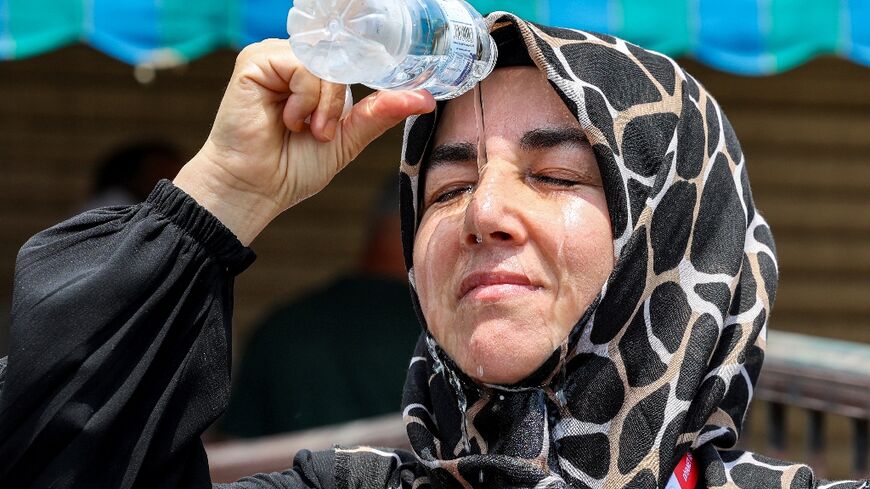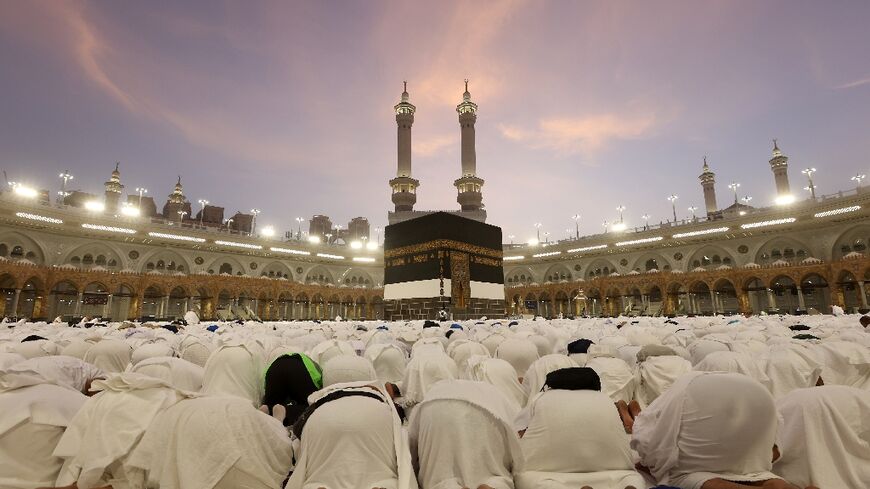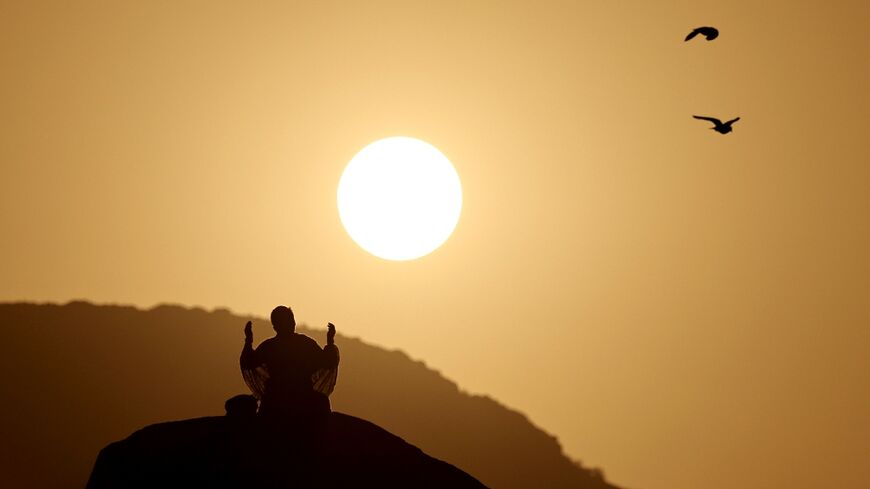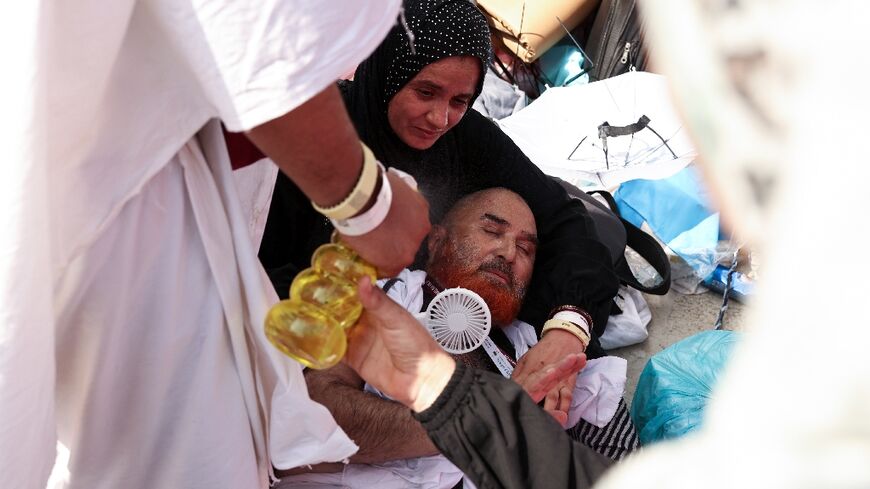Heat, old age, heart conditions blamed for over 1,000 deaths at Hajj
Many of those who died were unregistered users who suffered from the intense heat in Saudi Arabia, according to regional authorities.
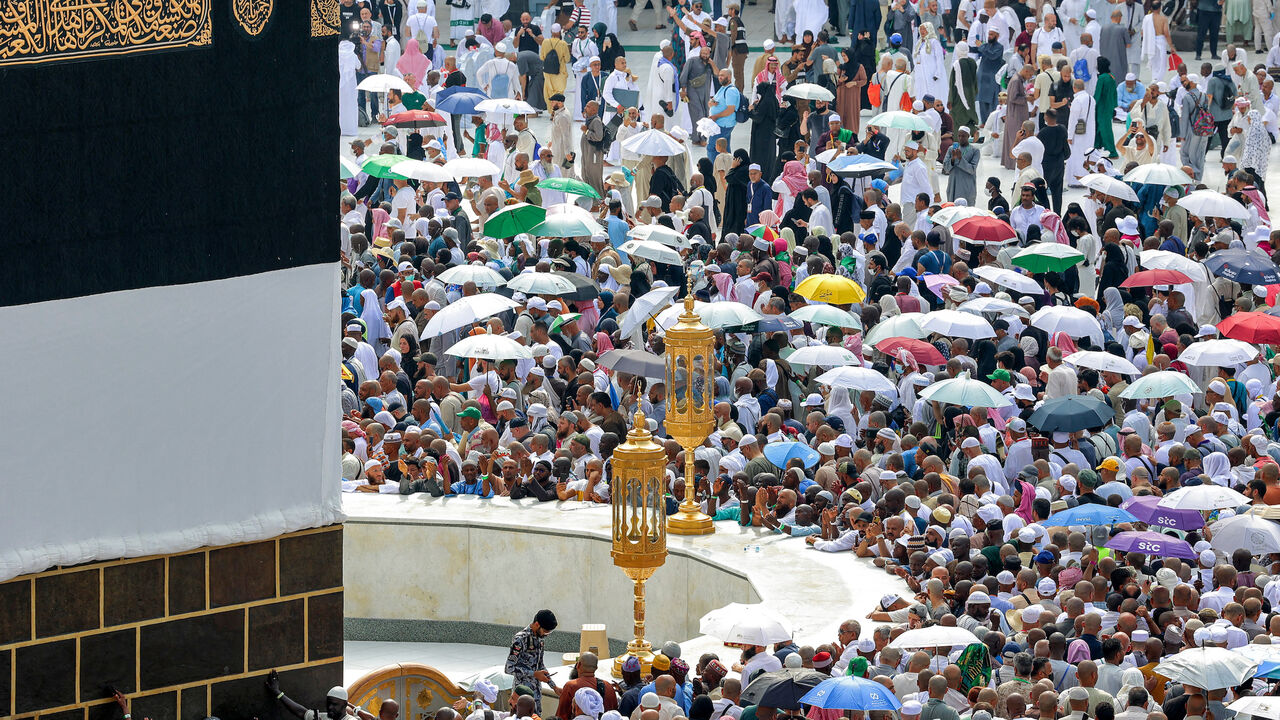
More than 1,000 deaths have been reported from the Hajj pilgrimage in Saudi Arabia as of Thursday, with extreme heat as high as 125 degrees Fahrenheit (52 Celsius) being a major culprit and as impacts of climate change challenge the region.
What we know: Agence France-Presse reported on Thursday that around 10 countries have reported 1,081 deaths at the annual Islamic pilgrimage. More than half of those who died were unregistered pilgrims, according to the outlet. Reuters reported on Wednesday that at least 562 people have died, with 307 of the deaths coming from Egypt alone.
The Hajj is an annual pilgrimage by Muslims to Mecca, Mount Arafat and other holy sites in Saudi Arabia. Pilgrims are required to register with Saudi authorities, though some go unofficially.
This year’s Hajj has taken place in extreme heat, with temperatures reportedly reaching 125 degrees Fahrenheit (52 Celsius) at Mecca’s grand mosque this week. The more than 1,000 deaths is four times higher than the at least 240 who died in 2023.
Many of the deaths have been linked to the heat. The Jordanian Foreign Ministry said in a statement on Tuesday that 41 citizens on the pilgrimage had died due to sunstroke.
Jordan’s state broadcaster Al-Mamlaka reported on Wednesday that Jordanian pilgrims who were not part of the country’s official delegation had to walk in the sun to reach Arafat, causing death and injury.
A Kurdistan Regional Government official told the Iraqi Kurdish news outlet Rudaw on Tuesday that 15 people from the region died in relation to the heat wave during the Hajj. KRG spokesperson Karwan Stoni told AFP on Monday that heat and heart attacks were the reasons for the deaths, adding that 12 of the dead did not have official Hajj permits and therefore could not access air-conditioned areas.
Saudi officials have not commented on the number of deaths, but have repeatedly urged pilgrims to follow safety precautions such as avoiding direct sun exposure, using umbrellas and staying hydrated. Saudi authorities said last Saturday that they had cleared more than 300,000 unregistered pilgrims from Mecca ahead of the Hajj, according to the official Saudi Press Agency.
Iran’s official Islamic Republic News Agency reported on Tuesday that 11 Iranians died during the Hajj, mostly due to heat stroke and old age.
Tunisia’s Ministry of Foreign Affairs said in a Tuesday statement that 35 Tunisians had died during the event. Of those who perished, 30 traveled to the kingdom on tourism or visas for the Umrah, or visits to Mecca outside of the designated Hajj period.
Pakistan’s Ministry of Religious Affairs said on Wednesday that at least 35 Pakistanis had died during the Hajj. The ministry did not list specific causes of death, but noted the extreme heat in the area, according to reports in the country.
Malaysia’s Religion Minister Datuk Mohd Na'im Mokhtar said on Thursday that 14 citizens died, mostly due to heart disease, pneumonia and blood infection, Malaysian media reported.
Other deaths were confirmed by the governments of India, Senegal and Sudan, according to AFP.
Why it matters: Climate change is hitting the Middle East and North Africa on a wide scale this summer. Kuwaiti authorities announced temporary power cuts on Wednesday, citing struggles to meet demand during peak hours.
People in the region rely on power for cooling systems during the summer heat. Power supplies are relatively stable in the Gulf, but public electricity is only available for part of the day in Lebanon, Iraq, Syria and other parts of the region, prompting those who can afford it to use fuel-powered generators.
Algeria has experienced protests this month over water shortages. The North African country’s water supply has been diminished by intense heat and a lack of rainfall.

